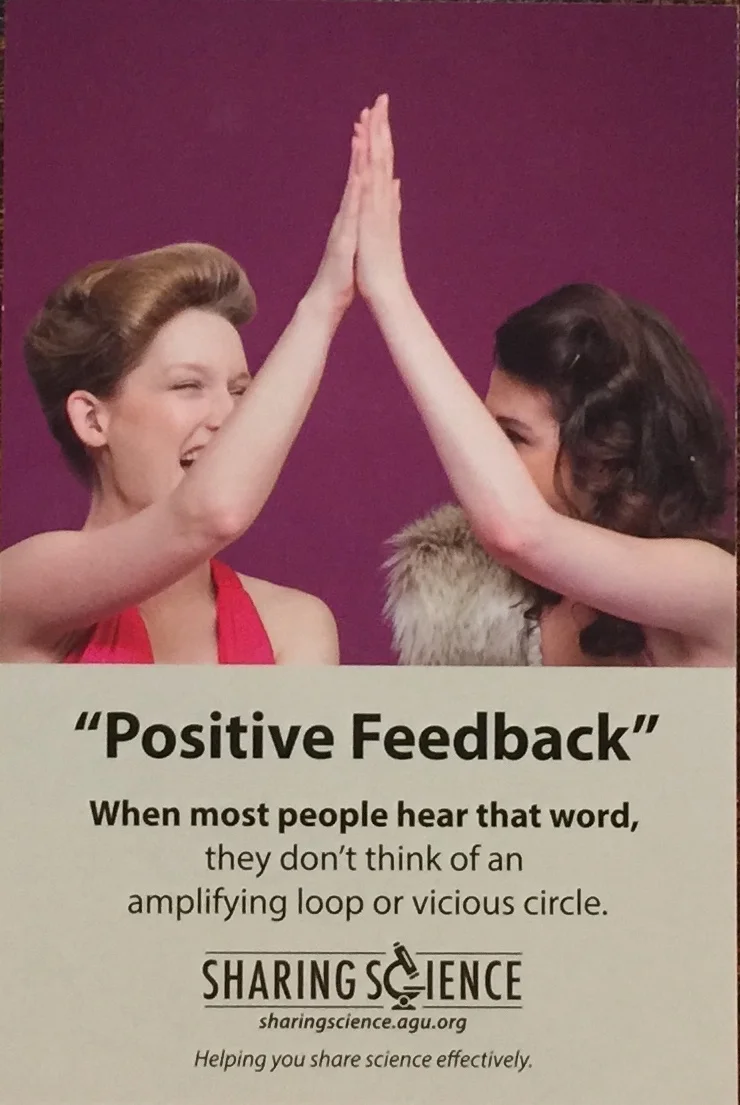Cloudy with a Chance of Meatballs, 1978
The weather in Chewandswallow before climate change. Illustration by Ron Barrett, image from publisher's promotional website.
Believe it or not, climate change refugees can be the subject of a delightful and beloved children’s book.
Judi Barrett’s Cloudy with a Chance of Meatballs is framed as a bedtime story that Grampa tells his grandkids. People in the far away town of Chewandswallow received all their food from the sky, in weather that came at breakfast, lunch and dinner time. Each meal was balanced and appropriate, described in playful parody of weather reports.
“Dinner one night consisted of lamb chops, becoming heavy at times, with occasional ketchup. Periods of peas and baked potatoes were followed by gradual clearing, with a wonderful Jell-O setting in the west.”
The sky provided all the food the people could want. “Life for the townspeople was delicious,” Grampa continues, “until the weather took a turn for the worse.”
Then the climate becomes disordered. One day nothing but gorgonzola cheese falls, the next only overcooked broccoli. The food becomes larger and larger. A giant pancake buries a school. A tomato tornado leaves the town a seedy, pulpy mess. Soon, the residents begin to fear for their lives. “A decision was made to abandon the town of Chewandswallow.” Gluing together giant pieces of stale bread with peanut butter, the townspeople set pizza sails for a new land. Welcomed into a small coastal town, they turn their bread boats into temporary houses as the grandkids fall asleep.
Climate refugees set sail using the resources available to them.
As I read the book to my son recently, he heard a ridiculous story and laughed and laughed. I heard echoes of 1970s climate disasters.
“In the early 1970s,” historian Spencer Weart notes, “the public learned that climate change could be an urgent problem.” In 1972, the Peruvian fisheries collapsed because of El Niño, and the Indian monsoon failed. Drought killed grain crops across the Soviet Union and affected the US Midwest as well. In the African Sahel, starvation, death, and mass migrations resulted from drought (and the economic/political inability of local governments to import large amounts of food). As Time put it in 1974, "the world's prolonged streak of exceptionally good climate has probably come to an end — meaning that mankind will find it harder to grow food."
So when Judi Barrett published her book in 1978, did she intend to tell a story about human adaptation to climate change? No. At least, she doesn’t say so in interviews she has conducted with children’s media.
“Amazing Kids Magazine: Is there a message in the story that you would like to get across to the readers?
Judi Barrett: Just pure enjoyment and the absurdity of food falling from the sky.”
But I think the book offers a pretty useful opening when you decide to talk with your children about climate change. Like the best children’s books, it offers kids a compelling and readily graspable story that you can use as a common frame of reference as you figure out how to interpret difficult, confusing events.
Learn More
Spencer Weart, "The Public and Climate Change," part of The Discovery of Global Warming website, American Institute of Physics, Center for History of Physics.
Isabella, Kid Staff writer, "Interview with Judi Barrett, Author of Award-Winning Book, Cloudy with a Chance of Meatballs," Amazing Kids Magazine and website, undated.







